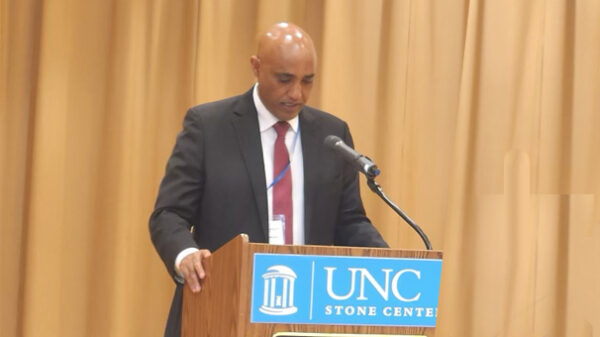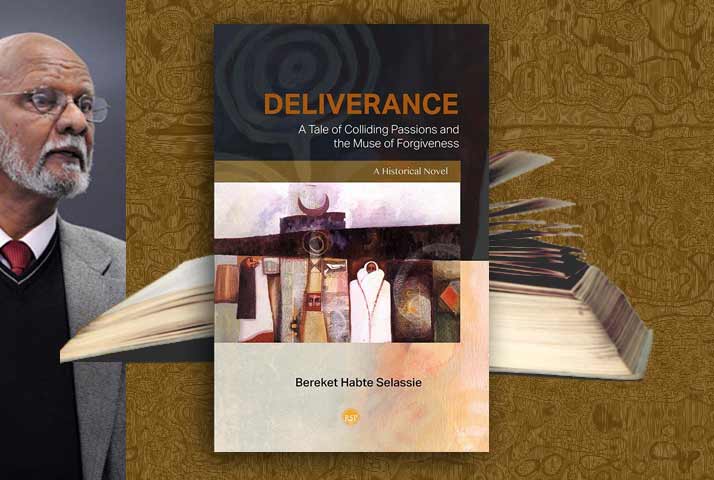Wounded Nation : A Book Review
 Rarely does one find a serious and intelligent book that is totally engaging, but the author of a new book, “Wounded Nation: How a Once Promising ERITREA was Betrayed and its Future Compromised,” did just that. “Wounded Nation” takes up on where the first volume, “The Crown and the Pen,” ended. The book according to the author is “both a memoir and an attempt to answer a simple question: How did we Eritreans get into the present mess?” There is, of course, nothing simple about the question, but as the author meticulously peels off the many layers of confusion, and tell the story “behind the story,” you begin to see clearly and enhance your understanding.
Rarely does one find a serious and intelligent book that is totally engaging, but the author of a new book, “Wounded Nation: How a Once Promising ERITREA was Betrayed and its Future Compromised,” did just that. “Wounded Nation” takes up on where the first volume, “The Crown and the Pen,” ended. The book according to the author is “both a memoir and an attempt to answer a simple question: How did we Eritreans get into the present mess?” There is, of course, nothing simple about the question, but as the author meticulously peels off the many layers of confusion, and tell the story “behind the story,” you begin to see clearly and enhance your understanding.
It would probably be helpful to many to start with the journey of a man—who somehow better mirrors the complexity of modern Eritrean history than any other Eritrean—with the first volume. After all, the two volumes tell the story of a son of a charismatic preacher, from his birthplace of Adi nfas to the international halls of academia and power and to the liberation struggle of his country, Eritrea. This is the story of a man who reads most of the books we love in the original language they were written. His vast experience and learning are only surpassed by his humility and unpretentious interaction with all people from all walks of life.
To understand Dr. Bereket is, perhaps, to understand Eritrea; he embodies the best of its past heritage, its ongoing unquenchable thirst for freedom, and the best days that are yet to come. In these two memoirs, the author neatly unfolds the past into the present, and the many seeds of future greatness of Eritrea are there to be harvested in the future, but only if we have the wisdom to “abandon past biases in favor of a national patriotic goals aimed at national salvation.” To that end, he advises the younger generation, less than 50 years of age, to assume its rightful place of leadership and think beyond the status quo without antagonizing the current leaders of the opposition. “It would be neither desirable nor feasible to advocate doing away with the present opposition camp.”
That being said, it is I think important to mention that the two books are written in a way they could be savored independent of each other. What is more important is that when as many Eritreans as possible read these books, they could potentially enhance and elevate our public discourse by giving us common reference. The book has to be published in a paperback, so that more people could afford to buy it.
Dr. Bereket, or wedi qeshi Habte Selassie as he is affectionately known in the area where the author hails from, is a trailblazer; a maverick who is deeply rooted in the traditional values of Adi nfas. Adi nfas was/is part of Karneshim, but it was for a long time in the past an independent village-state with fiercely independent-minded people. The most famous person that came out of Adi nfas is no other than the ancestor of the author himself, the great degiat Asgede, generally known as the defender of the historic monastery of Bizen; debre bizen. It was degiat Asgede who defended debre Bizen against the onslaught of Ahmed Gragne; thus, giving birth to the myth of Hamsien zeydfer meret (Who dares mess with Hamasien!). And who among us can question the role Karneshim in general and Adi nfas in particular played in the success and development of the EPLF, the organization that made the clarion call of Mount Adal, Eritrea’s independence a reality.
True to his pioneering nature, the good doctor chose a genre of writing that is almost unknown amongst Eritreans. I’m glad he did; this way we can have the best of both worlds. The rigor of academic writing is beautifully blended with the art of literature in his memoir. This powerful mix helps the author unravel one of the most puzzling questions that has consumed the minds of most Eritreans: How a once promising Eritrea was betrayed and its future compromised?” The book is “dedicated to exploring and fleshing out the causes and consequences of the country’s present predicament.” The author courageously goes where no Eritrean of consequence has gone before. He looks deep into the national soul to examine what has held Eritreans together. He tackles the anatomy of social and political forces that have shaped Eritrean politics such as religion, ethnicity and regionalism.
The author seems to be keenly aware that in our present predicament a scholarly approach to our history is far from feasible; the protagonists and antagonists of our story are still alive. Memoirs, biographies, autobiographies and historical novels such as Saleh Gadi Johar’s and Daniel Semere’s should fill the gap. Dr. Bereket calls upon all Eritreans and particularly those who were on the ELF side to take on the challenge and plant the seeds for future scholarship.
The importance of memoir writing was recognized by few Eritreans before Dr. Bereket, although their work was unfortunately lost or went unpublished. The last reigning prince of the deqi Teshim dynasty (the house of Hazega and Zeazega), Ras Woldenkiel Solomon was reported to have commissioned the writing of his and his son’s biography. Sadly, the book was lost as Ras Solomon and Ras Menghisha were retreating from battling the Italians in Tserona.
I’ve also been informed by credible sources that the petty dictator of Eritrea had hired a ghost writer to do his biography. The book was completed by 1997, and was with the press in Kuwait, but for reasons only known to the dictator, it was decided to be shelved. Shelving books and documents; sounds familiar!
There is no doubt that Dr. Bereket is the most qualified Eritrean to embark on this memoir writing endeavor. I say this not because the author is an internationally recognized jurist, academic, pan-Africanist; freedom-fighter, former EPLF representative to the UN, former Attorney General of Ethiopia, author of the 1997 Eritrean constitution, but because he is an incredibly intelligent, thoughtful and sensitive man—with a soul of a poet—who has wrestled with Eritrean issues for decades. He is at a point in his life where partisan politics don’t mean much to him; his sole concern is to tell the truth and shed some light.
In his introductory notes, the author stresses that his primary motive is “to tell the truth as I found it from documents, from my own direct knowledge, and from many interviews and other sources.” All Eritreans “bear responsibility for what went wrong,” and the only thing that shall set us free is the truth. The author tries “to confront our collective guilt and examine the obstacles that stood in the way of the fulfillment of the dreams of Eritreans, including freedom fighters both martyred and living.”
The book is divided into 14 chapters with 2 pictorial sections where familiar faces like that of Dr. Araya Debessay and his wife, weizero Semret, Dr. Assefaw Tekeste, Don Connell, Kassahun Checole and Paulos Tesfagiorgis grace the pages.
The genius of the book is that it tries to “provide a historical context to the Eritrean story and some of the principal actors and events involved in that story, viewed through the eye of an insider/outsider.” The author artfully navigates through the maze of history, law, literature, philosophy, theology…to make sense of what sometimes seems to be senseless Eritrean politics. In a fair and balanced manner he presents everything you can imagine and by the time you finish the book you come out with a better view of the big picture. I found the chapter that dealt the Eritrean-Ethiopian conflict was by far the most enlightening piece I’ve read. This is the conflict that made the Eritrean people realize that their emperor had no clothes.
Dr. Bereket is an intellectual who lives by the credo of intellectual inquiry and freedom of expression, but above all, he is an Eritrean patriot who spent the best parts of his life fighting for the cause of his people. “As we make a critical appraisal of our nation’s recent history,” he reminds us “to not lose perspective or to forget why Eritreans waged armed struggle.” The Eritrean revolution like any other human endeavor has its share of vices and virtues, and singling out one at the expense of the other would never open the gates of understanding and unity. The culture of collective action, sacrifice and defiance against injustice were the hallmarks of our revolution, and these are the same virtues that are needed today to right what has been wrong. As people we could not afford not to honor the sacrifices we have made, and these sacrifices should be at the core of our moral compass. Here is how the author put:
“When I think of the tragic conditions Eritrea is facing today… two images press themselves on my mind, stirring in my troubled psyche feelings of remorse and intimations of calls for action – action to bring an end to this, our winter of discontent. There is, first, the image of the heroic guerrilla fighters who defied the military might of a superior enemy (defied death itself) – a young tegadalai throwing himself at an advancing enemy tank holding a hand grenade, and exploding with it in the neck of time to save his comrades. There is also the squad of tegadelti running for attack, ululating their battle cry in the manner of celebrants at a wedding; yet there is the image of another squad dancing in the evening at a guayla following a successful day of battle. Images of our heroic past hat I cannot forget, and that no denigration of the ghedli, now fashionable among some, can erase!”
Amen!
Wounded Nation: How a Once Promising Eritrea was Betrayed and its Future Compromised.
Author: Bereket Habte Selassie
Publisher: Africa World Press
Price: $34.95



Awate Forum